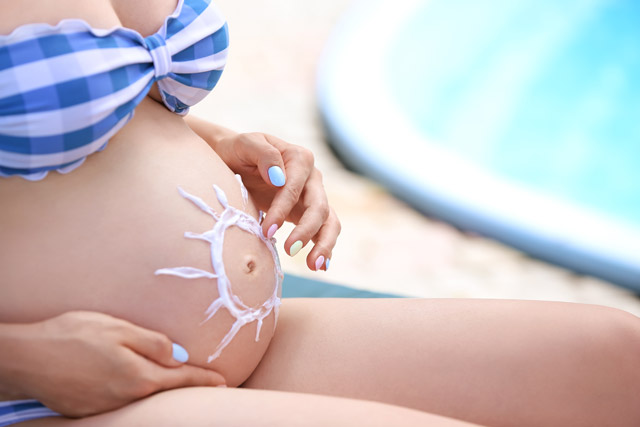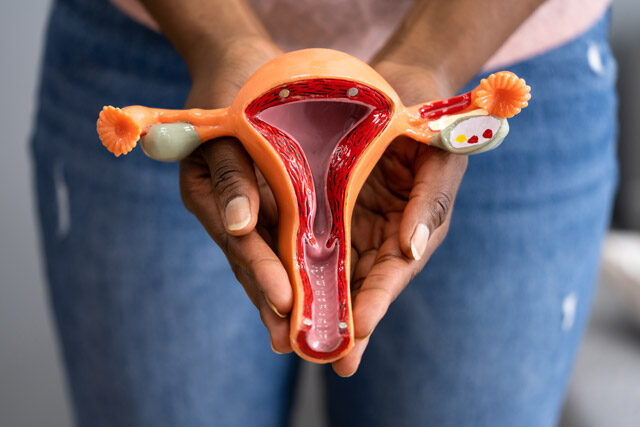When pregnant, a lot of women become literally obsessed with minimizing the use of any cosmetics and stuff that may contain potentially dangerous substances. Sunscreen is one of the items that often gets on the list of I-won’t-use-it things due to the fear of harming the development of the fetus.
However, getting to extremes is never a good idea. In fact, it is not only safe for pregnant women to wear sunscreen, but it is recommended by the American College of OBGYNs to use it. Why? Because the sun is a much more serious hazard for the pregnant woman’s health than any sunscreen ingredients.
Why Should You Use Sunscreen during Pregnancy?
The sun is getting more aggressive year after year, and even on a cloudy day, there is a risk of getting sunburns. Still, this is only one of the reasons you should apply sun protection creams. As for the others, they are:
- prevention of premature aging of the skin;
- prevention of melasma (also known as “pregnancy mask”) appearance and worsening;
- reduction of the risks of developing skin cancer.
Pregnancy makes our skin more vulnerable to the harmful impact of the sun. Therefore, during this period of your life, you should take special care of your skin health.
Is It Safe for Expecting Mothers to Use Sunscreen?
Striving to minimize the use of any potentially harmful substances in self-care and daily routine, pregnant women start paying more attention to the active ingredients of the sunscreens they use. While there is not enough evidence of chemical sunscreen being dangerous for the unborn baby, it is still better to use mineral-based creams.
Zinc oxide and titanium dioxide and the two compounds of sunscreen that are pregnancy safe. The products having one of these substances as their active ingredients are called mineral sunscreen. Their primary benefit is that they stay on the skin surface and are never absorbed into the bloodstream, thus excluding any risks of harming the fetus.
When reading the list of ingredients of the sunscreen, make sure there is no PABA and trolamine. These are illegal in this type of product on the US territory, but if you happen to order the sunscreen online from abroad, there is a chance you’ll see these compounds listed on the bottle. Both of them are dangerous for your health and should by no means be used during pregnancy.
There is also limited evidence of oxybenzone producing a negative impact on the body. In animal studies, this substance provoked certain changes in mammary glands, which signals potential danger to the health of the mother-to-be and her baby. Therefore, you’d better avoid using sunscreen containing oxybenzone.
Can You Be Allergic to Sunscreen?
Allergic reactions to sunscreen are extremely rare yet possible. But unlike with other health products where the reactions of hypersensitivity are typically caused by the active substance, with sunscreen, you are more likely to be allergic to the preservatives, fragrances, and other additives present in such products.
To minimize the risks of developing any unwanted reactions to sunscreen, opt for products that are fragrance-free and contain no artificial colorants. It is also important that you check the ingredients list for any names you may be allergic to.
To be on the safe side and make sure your new sunscreen won’t cause an allergy, apply its small amounts on the hand or other small areas of the skin to see if your body will produce any unwanted reactions. If nothing happens within 15 – 30 minutes after application, you are not allergic to the cream.
How to Choose the Best Sunscreen for Pregnant?
Aside from safety, there are many other factors you should consider when choosing a safe sunscreen. Let’s take a closer look at each of them to help you make the right choice.
Skin Type Criterion
One of the things to consider when selecting sunscreen is your skin type. People with light skin and those who have many birthmarks require better protection. Their sensitive skin is strongly affected by UV rays and is at a much higher risk of sunburn than people with other skin types.
The skin on your face and the rest of the body differs in its sensitivity. Therefore, you need two different types of sunscreen: one for your face and the other one for the rest of your body. Don’t neglect such a requirement, as regular sunscreen may not help protect your face from durable sun exposure.
What Should It Protect from?
There are two types of sunrays you may be exposed to UVA and UVB rays. Both can penetrate the skin, causing premature aging and triggering the processes that can lead to the development of skin cancer. Only sunscreen broad spectrum protects from either type of UV rays.
The SPF Choice
You know that sunscreen potency is measured by its Sun Protection Factor (SPF). Dermatologists say there’s no point in using products with SPF lower than 30. One of the reasons is that the cream loses some of its potency once applied to the skin. Therefore, when you use an SPF30 cream, it comes on your skin as if it has not more than SPF15.
During pregnancy, you should apply sunscreen with SPF50 or higher, especially if you are going to spend a lot of time outside or go to the beach or other locations where the sun exposure is intense.
Prefer Water-Resistant Sunscreen
When bathing and sweating, the sunscreen is washed off the skin, leaving it unprotected under the merciless sun. To avoid this, you should opt for creams resistant to water. They are generally considered more long-lasting and can effectively protect you on land and in water. So water resistance is a must.
Using Sunscreen Correctly
It doesn’t matter the time of the year to protect your skin from harmful rays. In fact, its rays can be similarly harmful in summer and winter, so sunscreen is the thing you should use regardless of the weather.
Every manufacturer has its own recommendations regarding the application of sun protection creams. We’ve compiled some most typical ones for you to have an idea of what is right and what is wrong.
- Put on sunscreen a minimum of 15 minutes before you go outside.
- Reapply it every 80 minutes to preserve the desired level of skin protection.
- Reapply the cream after swimming even if less than 80 minutes have passed.
- Use additional methods of protecting your skin from sun exposure, like clothes, umbrellas, and hats.
The Myths about Natural Sunscreen
The marketing strategies of certain companies try to persuade you that you can substitute sunscreen with all-natural products like hemp seed oil, avocado oil, macadamia oil, and others. However, this is too far from the truth. One of the best-known examples of such a myth is the offer to use shea butter instead of sun protection creams.
While there is a grain of truth here, and shea butter does have SPF, it doesn’t exceed the levels of 3 to 4, which is nothing to protect your skin from the aggressive UV rays. You still can use this product as means of extra protection. Besides, shea butter works as an emollient. It moisturizes your skin, making it smoother and softer to the touch. Still, this product can never become a total substitute for products intended to protect your skin from harmful sun exposure.
Sunscreen Safe for Pregnancy – Final Words
Pregnancy is the period when you should take care not only of your health but also of the new life growing inside you. The burden of responsibility for the unborn baby makes it difficult to make the right decisions. Sometimes, striving to do better, we may actually do the contrary. A refusal to apply sunscreen is an example of doing so.
While many people say it may be harmful, science says it does the opposite and protects the mother-to-be from numerous health problems in the long term. Remember that every baby needs a healthy mom, so don’t refuse to use sunscreen; just choose it wisely.




